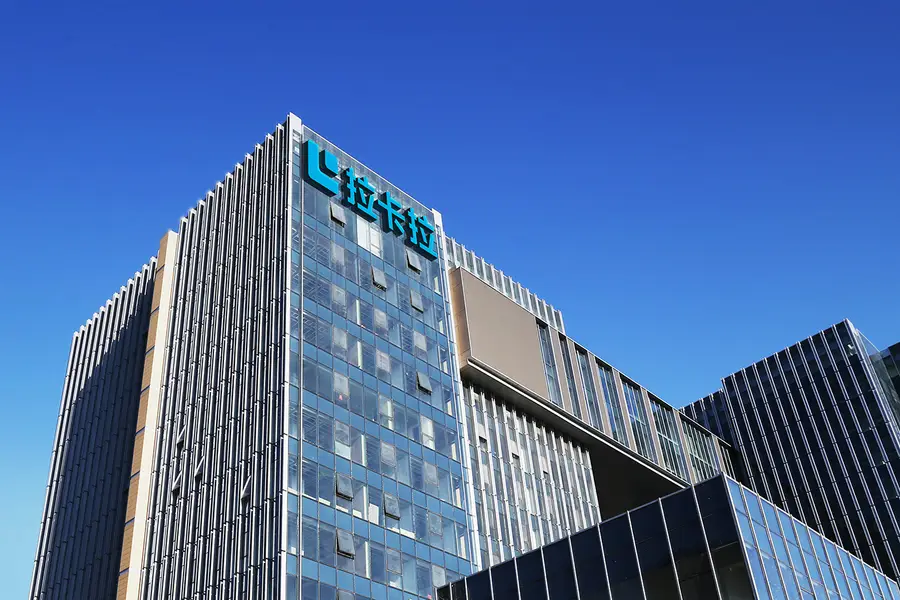Lakala eyes Hong Kong IPO as it hops on the going-global bandwagon

The payment services provider plans to use funds from its listing for overseas expansion to try to reverse its falling revenue and profits
Key Takeaways:
- Shenzhen-listed Lakala has filed for a Hong Kong IPO as it seeks growth outside its crowded home market in China
- The move comes as the payment specialist looks for new growth engines to offset declining revenue and profits at home
By Warren Yang
Going global is a big theme for Chinese companies these days. Whether or not such campaigns can succeed is another matter, as many of those companies inevitably find themselves running into established local and global competitors in unfamiliar foreign markets, not to mention a growing number of Chinese rivals.
Lakala Payment Co. Ltd. (300773.SZ) is joining that parade, hoping to raise both funds and its profile for overseas expansion with a planned Hong Kong IPO. In its preliminary prospectus, filed last Friday, the company makes it loud and clear that this fundraising exercise is all about building a significant global presence.
Lakala is far from alone in cooking up grand international expansion plans. A growing number of firms across industries, from manufacturing to retail to financial services, are looking overseas to jumpstart their flagging growth as the Chinese economy isn’t as strong as it used to be, particularly after the pandemic. But overseas expansion is often easier said than done as it’s time-consuming and costly — hence Lakala’s attempt to raise new capital from a share sale in Hong Kong.
Lakala says it does have some overseas operations already, with subsidiaries in Hong Kong, the U.S., Britain, Japan and Singapore. And yet those operations aren’t generating much revenue, if any. The company admits as much, saying its overseas income is too small for it to provide a geographic breakdown.
But Lakala thinks it can change that and is hoping the international investors that are a major force in Hong Kong will understand its global ambitions and give it money to reach them.
The company gives a very basic roadmap for its going-global plans, saying it will start by using IPO funds to expand its operations, focusing on Hong Kong, Japan, Southeast Asia, the Americas and Europe. Basically, it wants to plant its flag in all major markets you can think of. The plans will entail applying for licenses, setting up local teams, finding new offices and launching marketing campaigns in all those markets.
And Lakala is looking to beef up its technology to develop global products while looking for acquisition opportunities that can aid its global drive.
A lot is at stake for Lakala, which is one of China’s oldest online payment companies but lacks the recognition and scale of market leaders Alipay, WeChat and UnionPay. Reflecting the challenges it’s facing at home, the company’s revenue fell about 3% last year to 5.75 billion yuan ($807 million). The contraction accelerated in the first half of this year, when the figure fell another 11% year-on-year to 2.65 billion yuan.
Weakening profitability
Weakening profitability is an equally major concern for Lakala. Its gross profit margin dropped to about 25% in the first half of this year from 33% a year earlier, a significant decline in such a short time. The margin deterioration owes mainly to the rising cost of commissions that the company pays to its partners that distribute its point-of-sale (POS) machines to merchants as a percentage of revenue.
In the first half of this year, Lakala’s commission costs decreased less than 1% year-on-year, far smaller than its 10% revenue decline during that time. One possible explanation for the large gap is that competition is intensifying, forcing Lakala to sweeten terms for its partners at the expense of its margins. Such a situation would present a double whammy of deteriorating profitability and falling revenue.
As a result of that, the company’s profits have been falling steadily since 2023, including a 41% decline to 248 million yuan in the first half of this year from 420 million yuan a year earlier.
So, the company is banking on overseas expansion to return to revenue and profit growth. In parallel, Lakala is making a push to provide comprehensive digitalization services that go beyond just payments and cover other aspects of merchant operations, leveraging artificial intelligence (AI) and big data.
Such “end-to-end business digital solutions” currently account for a tiny share of Lakala’s revenue, which primarily comes from fees for payments made using bank cards and QR codes. But the company seems to be planning to make those products a key part of its overseas expansion, given how it talks up their growth potential in major geographies across the globe in its Hong Kong IPO document.
For one, the end-to-end digital solutions market in Southeast Asian countries, a popular target for Chinese companies, is expected to grow at a compound annual rate of 15% from 2025 to 2029, higher than 10% for China, Lakala says, citing third-party research. Japan is looking even more promising, with a projected annual growth rate of 18%.
Lakala is looking for a breakthrough two decades after emerging as a payment service pioneer. It was founded in 2005 by Sun Taoran, who remains with the company as chairman, and Xiaomi founder Lei Jun, with additional funding from conglomerate Legend Holdings, which is best known as the parent of tech giant Lenovo.
In its early years, Lakala grew on the back of rapid penetration of credit cards in China, fueled by the debut of UnionPay in 2002. The company struck gold in 2008 as it signed a partnership with Alibaba to enable Alipay users to top up their accounts using its POS machines, which were becoming ubiquitous at convenience stores across China. In 2011, Lakala was among the first companies that received official licenses for third-party payment services.
But with the rise of smartphones, mobile apps with payment features, led by Alipay and WeChat, started displacing POS terminals. In response, Lakala introduced a credit card reader that could be plugged into headset jacks on phones. But that product didn’t take the company far after some short-lived initial success. After a few more flops, the company is still heavily reliant on fees from card transactions.
Lakala shares have lost more than a quarter of their value since the company went public in Shenzhen in 2019. But valuation-wise, they are holding up relatively well. They trade at a price-to-sales (P/S) ratio of 3.5, higher than 1.2 for Yeahka Ltd. (9923.HK), a domestic competitor that is also looking overseas, and 2.1 for global giant PayPal (PYPL)
To return to growth, both on its top and bottom lines, international expansion seems like an important step for Lakala, even though chances of success are far from certain. And the Hong Kong IPO would be a crucial first step in that process.
To subscribe to Bamboo Works free weekly newsletter, click here





